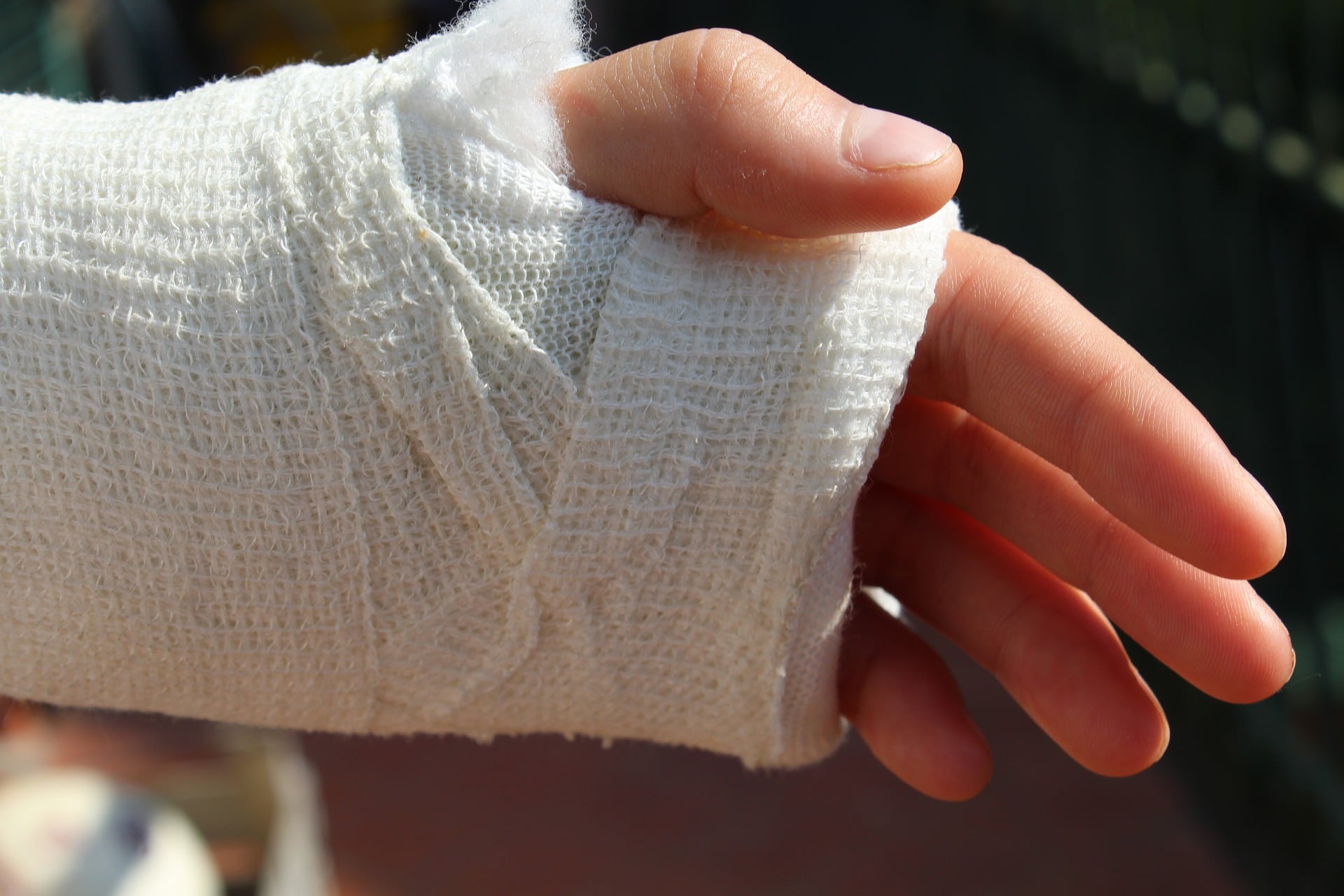Don’t Shrug Off A Slip And Fall
It’s the holidays and you head out to the grocery store to buy a few things you’ve forgotten. You arrive at the grocery store. As you enter, you unknowingly walk into a small puddle of liquid on the floor. You slip and fall, but quickly get up to avoid embarrassment.

No Problem
After getting up, you continue to do your shopping and go home. When you arrive at home, you quickly assess if there were any additional injuries incurred from the slip and fall at the store. You figure it is normal to feel a little sore as the accident just happened. You think nothing more on the matter. A few weeks later, you start to feel soreness and an achy pain sensation. You find it difficult to move around because of the pain. A few days later, you decide to schedule an appointment as the pain is more consistent and has begun to feel worse.
The Doctor’s Office
You arrive at your doctor’s office and start walking toward the examination room. You feel out of breath and in extreme pain. The doctor sees you and asks a few questions. “Hello, have you slipped or fallen recently?” he asked. You reply, “Hmm, not that I … oh wait! Yes, I slipped and fell at the grocery store some weeks back, but didn’t think much of it.” The doctor says, “I see, and you didn’t feel the need to tell anyone about your injuries?” You reply, “I didn’t tell anyone because it happened so fast. When I got home I felt a little sore but really didn’t think anything more about it.” It turns out that you’ve severely sprained your ankle and pinched a nerve when you fell. The doctor schedules another appointment for follow-up and sends you on your way with a prescription. The doctor recommends having someone else drive you home.
Consequences of the “No Big Deal” Approach
You call your spouse and they drive you home. You’re thinking to yourself that you shouldn’t have ignored that fall. You should have gone to see a doctor right away. You arrive at home and now you have to be off your feet for quite some time. During your doctor’s visit, the doctor indicated that there may be some long-term chronic pain associated with the fall and they say to take it easy for a while. Now you can’t fully enjoy the holidays and you have got a lot of things to do. You have to put up the lights, decorate, and cook. As you sit there you decide to get on the internet to learn about the possible chronic pain that your doctor has told you about.
Pinched Nerve Pain
Browsing online, you run into an article about pinched nerves. In it, it describes the symptoms associated with it and read numbness or tingling and stinging pain are some of the symptoms. “Yeah, no kidding,” you thought to yourself as you put your hand on your lower back. Reading on in the article, it gives some tips on alleviating the pain. Aligned with the doctor’s orders to “take it easy,” the article states to get additional sleep and rest. By adding sleep and rest, it will allow the pinched nerve to “heal on its own.” It goes on to say to not “overuse the nerve” to prevent further damage. It is also recommended not to sleep on the nerve to prevent putting pressure on it. Further down the article, it states that getting a massage or physical therapy will help with the pain. “If the doctor said there may be long-term chronic pain from the fall, physical therapy might be part of our discussion on the next visit,” you think to yourself. Continuing to read, you get to the section about ice and heat packs. It says to “use the packs alternating between them to increase circulation.” The article recommends applying this method three times a day.
The Take-Away
In summary, whether you have slipped and fell or tripped and hit your toe, it is best to seek medical attention, even if you only feel a slight pain. The long-term effects can be a consequence if you don’t take care of the injury right away. When an injury occurs, let someone know, even if you are somewhere other than home.
Recent Posts
- Castor Oil For Better Hair Growth: Is It Myth Or Fact?
- Exploring the Differences Between Sermorelin, Ipamorelin, Ibutamoren, GHRP2, and GHRP6: Understanding Their Role in Human Growth Hormone Regulation
- Unraveling the Mystery: Understanding the Causes and Prognosis of Ventricular Tachycardia Without Apparent Heart Disease
- Understanding Grandparents’ Rights in Oklahoma: Navigating Visitation and Legal Protections
- 10 Reasons to Consider Hypnotherapy for Your Health
